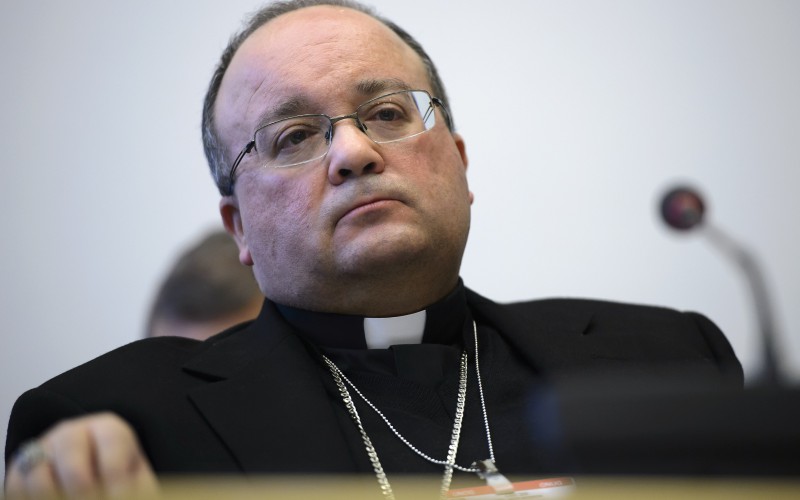Books Blog : Archbishop Charles Scicluna Is Right. We Should All Know the Grim Story behind Spotlight
By Francis Phillips
'Betrayal' is a grim story but every Catholic should read it I have just been reading a grim book: Betrayal (Profile Books, ?8.99). First published in 2002, it has now been reissued and updated to coincide with the release of the film Spotlight. For those few remaining people who might not know what the film is about, the Spotlight team were a small group of investigative reporters on the Boston Globe newspaper, who first alerted America to the systemic sexual abuse of young people by a small group of priests in the Boston archdiocese. Almost the worst feature of this harrowing saga was that Cardinal Law, archbishop of Boston, had known about this abuse yet had constantly moved the priests involved from parish to treatment centre and from treatment centre back to another parish. Those who did follow the story at the time and as it unfolded in other US dioceses and around the world, will know the main factors of this scandal: abusive priests were seen as sinful rather than criminal, and capable of changing their behaviour; the Church’s concern was to hush up the problem and to protect the institution at all costs; and the great majority of the Boston victims were post-pubescent teenage boys (whereas paedophilia is attraction to pre-pubescent children). In 2001 the Spotlight team was first alerted to the now notorious case of Father John Geoghan and set out to determine “whether the Geoghan case was an anomaly or part of a pattern”. In the course of their investigations they discovered that Cardinal Law had secretly settled cases where 70 priests had been accused of sexual abuse. After legal proceedings the archdiocese finally gave the prosecutors the names of more than 90 priests. The deeply Catholic archdiocese of Boston went from disbelief to shock and then to anger. The chapter titled “The Victims” is hard to read; shame, guilt and silence on the part of the victims led on in many cases to drug and alcohol addiction, depression and sometimes suicide. One of the victims sums it up poignantly: “How bad is it when your first sexual experience happens when you are unwilling and a minor, it’s a homosexual experience and at the hands of a priest?” The book concludes with a focus on the source of the abuse: the kind of men selected by seminaries. Commenting that in the 1950s “the number of men accepted into seminaries without rigorous screening was very large”, the authors also make it clear that celibacy is not the issue. They write that today US seminaries affirm that “they screen applicants rigorously for psychosexual maturity and a grasp of their own identity.” Naturally enough, the film does not include this development and ends on a depressingly low note. Law, who was forced to resign his position in December 2002, seems not to have understood the depth of the outrage of victims’ families when they discovered the Church’s collusion in the scandal. Reluctantly forced to resign from his position in December 2002, only after much pressure to do so, he is now aged 83, retired and living in Rome. As well as the particular tragedy concerning the permanently damaged lives of the young victims, the Church as a whole suffered a blow from which it has not yet recovered. The book quotes the father of a Boston victim who reflects the reaction of countless other Catholics: “I don’t want to be any other religion. I just can’t go to church.” Archbishop Charles Scicluna of Malta, former Vatican chief prosecutor in clerical sex abuse cases, has contributed his own robust view that “All bishops and cardinals must see [the film Spotlight] because they must understand that it is reporting that will save the Church, not “omerta””. As I said, the book makes for grim reading – but it should be read.
|
.
Any original material on these pages is copyright © BishopAccountability.org 2004. Reproduce freely with attribution.
